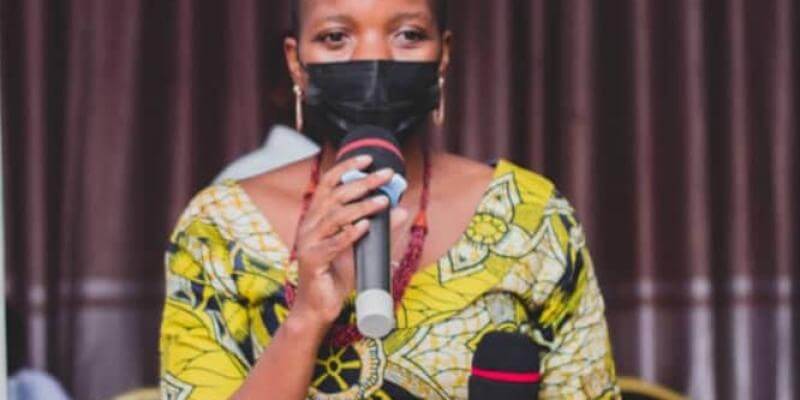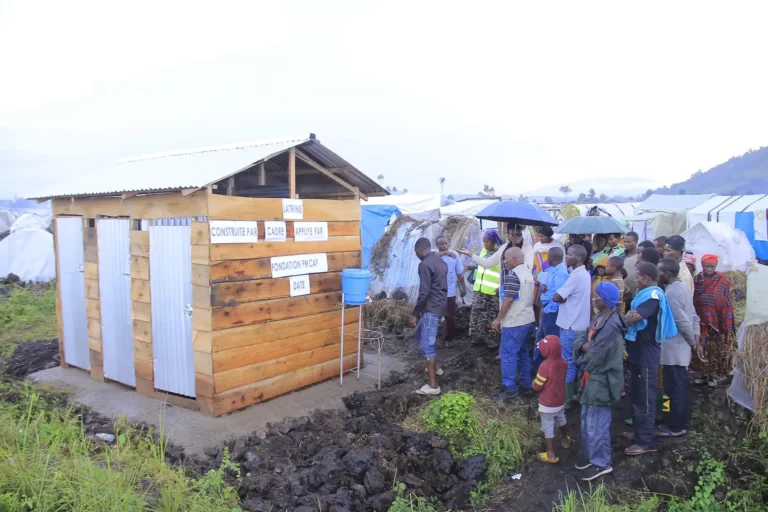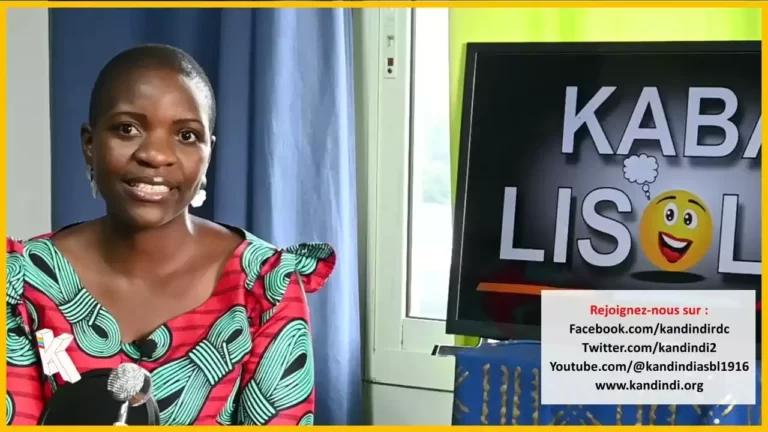DRC: the news of the week seen by Chantal Faida

From community tensions in Kwamouth to the Africa-Japan summit, to the multiple ADF attacks on the Komanda-Mambasa axis, the week that is ending has been rich in news. Chantal Faida returns to each of these highlights.
Hello Mrs. Chantal Faida and thank you for giving us your time. Since our last interview, what updates have been made to your activities?
Chantal Faida : I added to my course a specialization in electoral strategies which is part of the program The Campaign School at Yale University.
The past week has been dominated by clashes between the Yaka and Teke communities in the province of Mai-Ndombe. What are your recommendations for the government mission sent there to work to restore peace in this territory?
Chantal Faida : the province of Mai-Ndombe is known to be a peaceful region, a haven of peace. The resurgence of conflicts in this province is a situation that concerns and challenges more than one person. We urgently demand that the security forces be equipped to silence the guns. Also, that the notables of Mai-Ndombe can agree to sit around a table to dialogue and find solutions to their disagreements. For those who believe that with the approach of the elections, they must awaken the spirits of division, hatred or tribalism, we remind them that the DRC is a united, indivisible nation and we send a message of peace and harmonious cohabitation. . Unity in diversity is the motto of those who want to build. May the elections be an opportunity for reunification, rallying and concrete social cohesion.
At least four civilians, including a woman, died during a new ADF attack in Ruwenzori, in the territory of Beni in North Kivu. This province is however under a state of siege. What can be done to make this exceptional measure a total success?
Chantal Faida : we remind the government that article 16 of our country’s constitution recognizes the sanctity of life. The State has the obligation to protect and secure it. Alas! We continue to count the dead in this part of the country. We also recall that in Rutshuru territory, it will be two months and ten days that the city of Bunagana has been occupied by the M23. May our authorities redouble their efforts to bring peace and security to this part which belongs to the DRC.
The Komanda-Mambasa axis was again the target of the ADF. There are more than four attacks that have resulted in more than ten deaths in one week. What is your analysis of this situation?
Chantal Faida : the authorities have a duty to reunify the country within its borders bequeathed by our fathers of independence. We deplore the fact that the compatriots who cross these axes to go about their business do not have the possibility of returning to their territories because the rebels prevent them from doing so, but also because the FARDC treat all those who come from these regions as rebels. We ask the rebels to lay down their arms.
In Irumu, in the territory of Beni, a soldier shot and killed two people before killing himself. This is a recurrent fact in this territory. What to do to end it?
Chantal Faida : the lack of control of weapons held by the security forces should challenge the authorities at central and provincial level. The soldiers who are not in operation should remain in the barracks. That the police armed with weapons are also followed and controlled to avoid similar tragedies to the Congolese society which is already bruised by several painful stories.
The FARDC and the UPDF are planning a new phase of joint operations against the ADF in the territories of Beni and Irumu. What mechanisms must be put in place to make these operations successful?
Chantal Faida : the next phase of joint FARDC and UPDF operations should normally be preceded by an evaluation of past operations to find out whether the planned objectives have been achieved. To date, we continue to record the attacks of the ADF while the UPDF had come to pool efforts with the FARDC. We call on the authorities at the central level for a serious, independent and uncompromising evaluation before being able to continue the collaboration with the UPDF. We also ask that our armed forces be equipped so that they alone are capable of restoring peace and security in the two provinces under siege.
Five members of the same family were killed in a fire in Bukavu. These cases are becoming repetitive in this part of the country. Civil society pleads for the city to be provided with fire-fighting vehicles for assistance in the event of an emergency. Your point of view on this question?
Chantal Faida : Regarding the fires, we are asking the town planning and habitat services to clear the streets so that the emergency services can provide assistance to the victims as soon as possible. It is up to the authorities to meet the expectations of civil society. During this week, there was also the collapse of a building which caused deaths in Bukavu. We deplore these acts and recommend that engineers and architects comply with the laws and texts of the DRC in terms of construction and buildings. Once again, that the town planning and habitat services can follow the construction of large buildings to avoid such tragedies.
A few days after the official announcement of the 15th Ebola virus epidemic, a vaccination campaign was launched at the Beni general reference hospital, targeting health personnel. What are your recommendations for the response?
Chantal Faida : the 15th outbreak of the Ebola virus is a big surprise for the population that was already immune to this disease. We ask that the vaccination campaign be extended to the whole province and even the country to avoid such a close resurgence of epidemic cases. We encourage people and community leaders to observe barrier measures and to approach health centers as soon as the first signs of the disease appear.
Back to school is scheduled for September 4 across the country. Knowing that situations of insecurity have caused massive population displacements, what would you say about this?
Chantal Faida : We launch a vibrant appeal to the Nation to come to the aid of the thousands of people on the move who occupy schools, mainly in the territory of Rutshuru. The students do not know where they will continue their studies since the families occupy the site. We call for humanitarian assistance to be guaranteed and delivered to people on the move. That the sites of the displaced can acquire emergency schools and that article 43 which enshrines the access of all Congolese children to education is also a reality for the children of families on the move.
At the continental level, an Africa-Japan summit opened in Tunis to promote development led in particular by Africans “themselves”. Do you have any expectations in this regard?
Chantal Faida : it is a summit placed at the international diplomatic level. Japan wants to position itself at the level of the African continent compared to other great powers. I call on Africans to carefully select their partners, partners who take into account their values, their contribution and who reward the dividends of partnerships fairly. Japan is a country that has a similar history to the DRC with a volcanic geography (active volcanoes), but which continues to build and is resilient. I call on the Congolese authorities to forge win-win partnerships and not to sign contracts where the Congolese people lose from all points of view.
One last word ?
Chantal Faida : we appeal to the CENI to intensify communication as the revision of the electoral register approaches. We would like to know, for the provinces of North Kivu and Ituri which are under a state of siege and which are registering thousands of displaced persons, how and where the vote will be carried out for these populations. We welcome the new measure which will ensure that populations on the move and those in the diaspora can be entitled to voter cards.
Interview by Prisca Lokale






